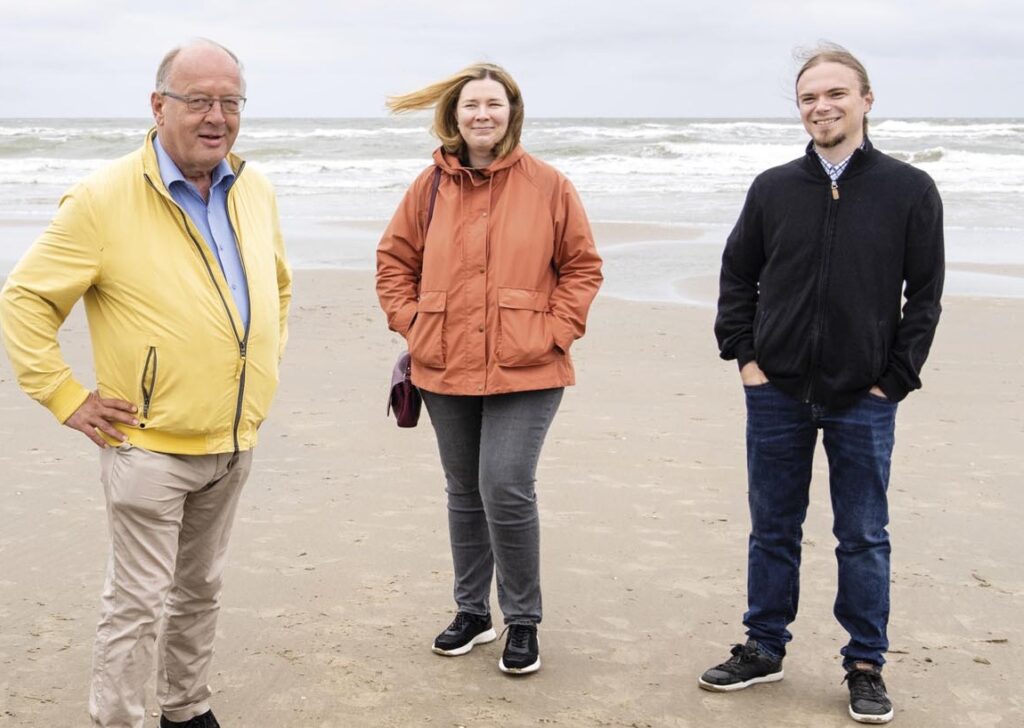Efficiency and security
The Advanced Computing and Systems group at the Leiden Institute of Advanced Computer Science builds tools and techniques to improve the efficiency and security of advanced computing systems.
Last May, NWO awarded 1.8 million euros to the PROACT project, in which a consortium of researchers from various universities and companies is going to investigate how to improve the security of electronic and mobile devices connected to the Internet of Things. The consortium’s coordinator is Nele Mentens, Professor of Applied Cryptography & Data Security at the Leiden Institute of Advanced Computer Science (LIACS) of Leiden University.
In 2020, Mentens started her job at the Advanced Computing and Systems group, which is formally led by her colleague professor Harry Wijshoff. The group’s focus in research and education lies in the design and security of advanced computing systems, she explains. ‘On the one hand, we study distributed and cloud computing systems, with the goal of speeding up applications. On the other hand, we investigate embedded and edge computing systems, mainly with the goal to improve their energy efficiency. A third theme of the research in the group is data security, which runs from the lowest hardware level to the highest software level. The PROACT research is part of the second and third theme: it concentrates on securing energy-efficient embedded systems at the hardware level.’
A specific characteristic of the Advanced Computing and Systems group is that it builds tools and techniques to automatically analyse and improve advanced computing systems, for example by exploring a system’s energy efficiency or computational delay. ‘In Leiden, our group comes closest to what technical universities do’, says Mentens. ‘Whereas the rest of LIACS mainly uses computing systems as tools for specific algorithms or specific applications, we are passionate about designing, understanding and developing the details of advanced computing systems.’
The group’s research also comes pretty close to real-world applications such as home appliances, biomedical and automotive systems, and consumer electronics. The group is constructing an Edge & Cloud Lab at LIACS in order to perform the necessary experiments. Mentens: ‘It will be a lab suited for experiments covering all kinds of devices, from low power to high power, from small embedded systems and devices connected in an Internet of Things to high-performance cloud servers. With all the new experiments we design, we keep in mind that they have to fit in the new lab.’
Beyond theory
Alexandru Uta is an assistant professor in the Advanced Computing and Systems group. He specialises in large-scale computing systems like the Cloud, or the internet. ‘I evaluate their efficiency and performance’, says Uta. ‘Many researchers in this field neglect the reproducibility of experiments, whereas I put a strong emphasis on creating reproducible experimentation. One of the biggest challenges is to reproduce experiments in large-scale systems. That is very difficult because the performance of different infrastructures often varies quite a bit and their properties can change over time, which might alter the final outcomes.’
Uta has just started his research on reproducibility for which he received an NWO Veni grant in 2020. In order to experiment with large-scale systems, he cooperates with other Dutch universities and with SURF so that he can run experiments over hundreds or thousands of CPUs and come close to what happens in real large-scale systems. ‘This type of cooperation between a cluster of institutes through infrastructure like the DAS-6 is quite unique for the Netherlands’, he says.
Uta: ‘What I like in our group is that we are all very much interested in going beyond the theory, in analysing what makes a system functional and efficient, and ultimately in building systems that work. I also like the fact that we have many young people and that LIACS, in general, has a focus on interdisciplinarity.’
Freedom of choice
Olga Gadyatskaya is another assistant professor in the Advanced Computing and Systems group. She specialises in cyber security. ‘On the one hand, I develop formal models to understand and tackle cyber security threats’, explains Gadyatskaya. ‘On the other hand, I investigate the cyber security of mobile applications. Many consumers are much more relaxed when they use their mobile phone compared to using their laptop. We are developing new ways to analyse which security problems might arise by using a third-party app, like a game, for example.’
Gadyatskaya was educated in Russia and subsequently did research in Italy and Luxemburg, so she is in a good position to make comparisons. ‘What I like in our Leiden group is that there is a lot of knowledge about advanced distributed systems and that everybody is free to pursue his or her own directions and ambitions. My ambition is to establish my own group focusing on the intersection of software security and models to analyse cyber threats.
Compared to the countries where she previously worked, the Netherlands has a strong ecosystem, she states: ‘Everybody knows everybody, and it is not difficult to start a new collaboration.’
A specific tradition cherished by the Advanced Computing and Systems group is a regular outdoor meeting in Katwijk aan Zee, Gadyatskaya says. ‘We go for a walk in the dunes and along the beach and we end our group meeting with eating ‘kibbeling’ (fried fish), some of the best in the country I’ve heard. Even during the pandemic, we could go for these walks, talk with each other and still stay at a safe distance.’
Group passport
Research field
- applied cryptography, data security, high-performance computing, large-scale computing infrastructure, embedded & real-time computing, cyber security
Institution
- Leiden Institute of Advanced Computer Science(LIACS) at Leiden University
Employees (as of September 2021)
- 2 professors, 1 associate professor and 3 assistant professors
Facility
- Edge & Cloud lab, under construction
Websites
Published in I/O Magazine #3 2021
Text Bennie Mols
Images Ivar Pel
